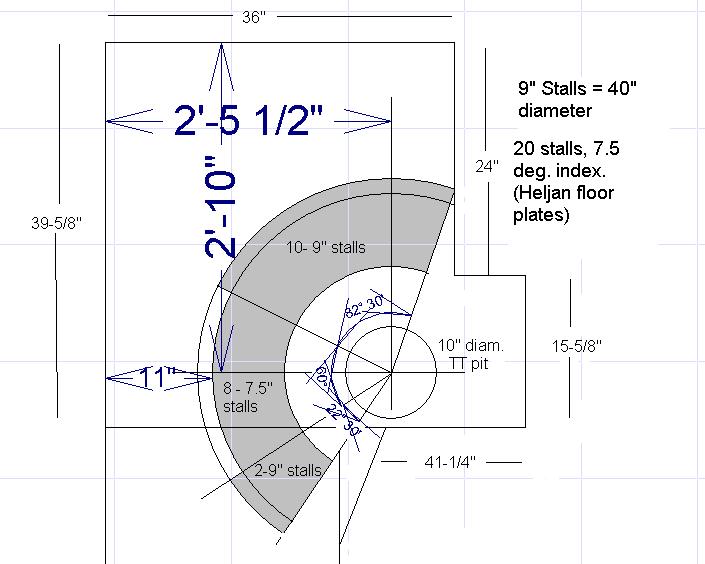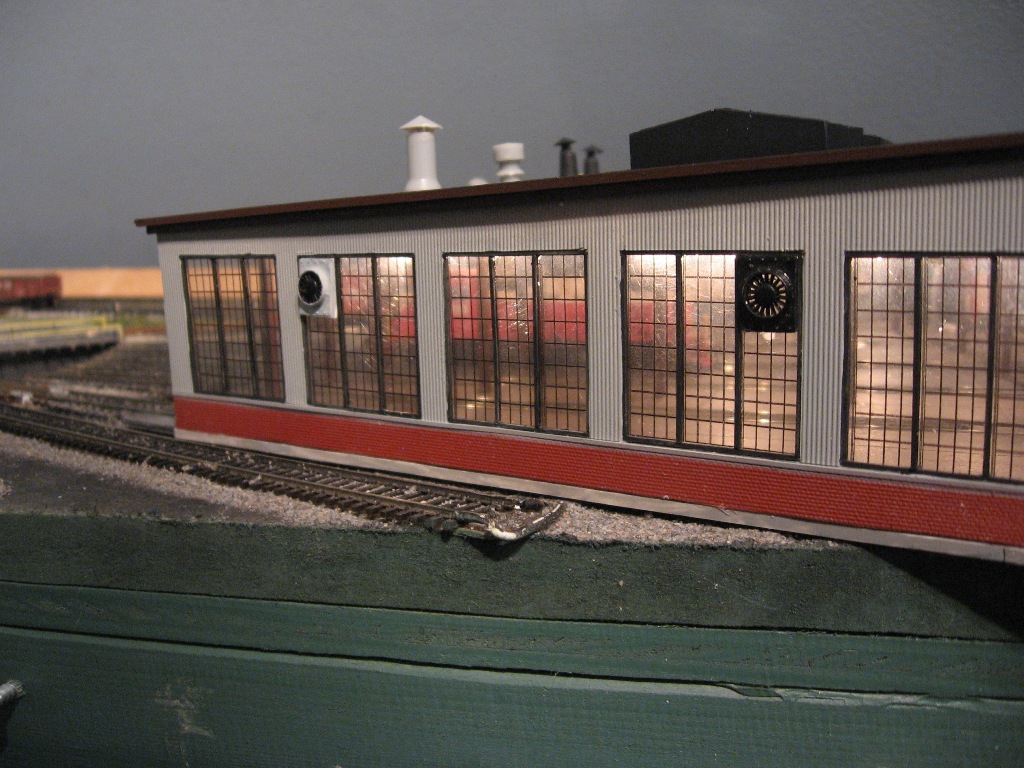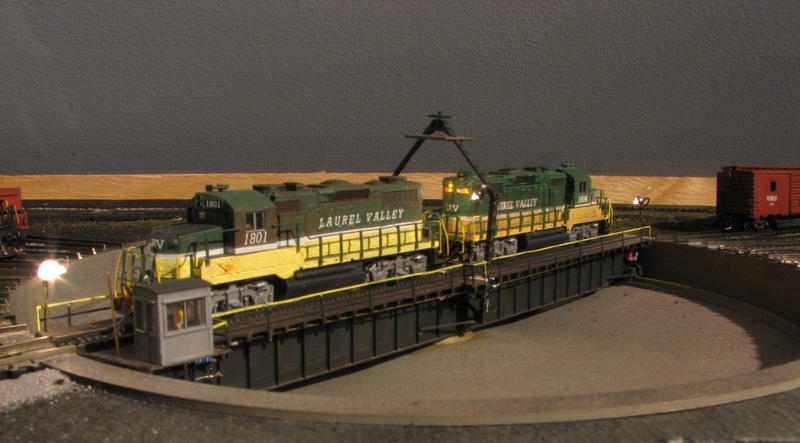One of the focal points of my layout will be the engine terminal. The hub of operations on the Western Maryland was Hagerstown, where a massive 25 stall roundhouse stood from around 1915 until 1999, when a cowardly city council and a dastardly CSX conspired to knock it down, even as an historical preservation group was developing plan to turn it into a "working museum" serving as a regional facility where the growing number of operational locomotives could be stored and serviced.
Because it lasted so long, Hagerstown went from being a major steam shop, to a busy diesel shop, and in its last years, back to a steam shop. Ross Rowland restored C&O 614 there back in the 1980's. Sort of a bitter irony given that the C&O's devil spawn couldn't see fit to restore the old WM shops... But I digress...
On my layout, I'm combining the functions of Hagerstown with Ridgely and Knobmount, the two yards at the other end of the Potomac Valley, near Cumberland. The yard itself is fashioned after Ridgely, which was relatively small, but handled much of the switching and blocking for the Alpha Jets, which called there early in the morning, and again late in the evening. But the engine terminal, ah... it will be more like Hagerstown...
The centerpiece, of course, will be the roundhouse.

In order to get trains running while I developed my final plans, I built this temporary yard and engine house, based loosely on the WM roundhouse at Elkins, West Virginia. This was a 7 stall affair, and was really a practice run for roundhouse construction. At one point, the track plan included an engine terminal for Elkins as well as Hagerstown, but space limitations ended up pushing it off the map. So, I sold it, and started working on "the big one..."

I'm using the old Heljan/Walthers "Union City" roundhouse as the base for the model. Interestingly, back in 1980, when I got my first paycheck ever, I bought one of these kits for use on an overly-ambitious layout planned by an overly ambitious 10th grader...

(I can't even remember where it was supposed to go!)
Anyway, starting with that old roundhouse, or at least the bones of it, and adding several more through barters, ebay and otherwise bottom feeding, I began framing up my 20 stall version of the Hagerstown Roundhouse.

The Heljan/Walthers kit is providing the floor, skeleton, and much of the roof system. The rest is being bashed and scratched to moderately resemble the Hagerstown roundhouse, with brick sidewalls with corrugated metal.. er.. styrene uppers. I made the big windows by having artwork photocopied onto transparency film, then accented with some strip styrene, much as I did with the Elkins roundhouse...

(The vent fans came from a scrapped GP40 shell!)
As a nominally modern layout (late 60's, early 70's) my roundhouse fits right in, again, totally justified by my prototype. With a fleet of around 50 locomotives at my disposal, the roundhouse gives me a relatively compact (about 9 square foot) area to store/display many of them. Each stall holds 2 diesels, with a couple of longer ones to accommodate my SD40's. Modern SD Acey Mac and Cheeses or GE Dash-whatevs might be a little snug, but there's enough lead track before the stall door, that they'll still fit.
The roundhouse also serves an important function in the operations of the layout. Ridgeley (my combined yard/Engine terminal) serves as a division point, so while the thru trains are being switched and blocked, the motive power is being switched out, too. So there's plenty of work for the hostler to make sure there's enough fresh horses available to keep that fast freight rolling.

So, the roundhouse does in fact "service" the locomotives, and make sure they're ready to emerge to pick up the westbounds heading into the jaws of the Allegheny front. As such, it also provides a nice, comfortable place for them to get a bit of rest....

So yeah, A roundhouse is a good thing, and well worth the investment of real estate!
Lee